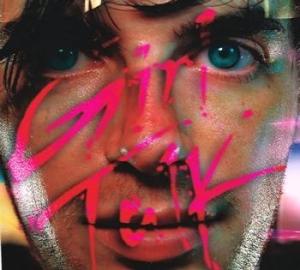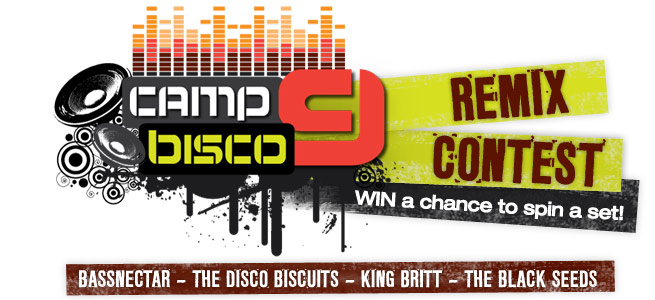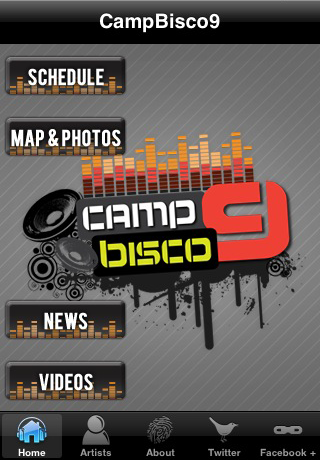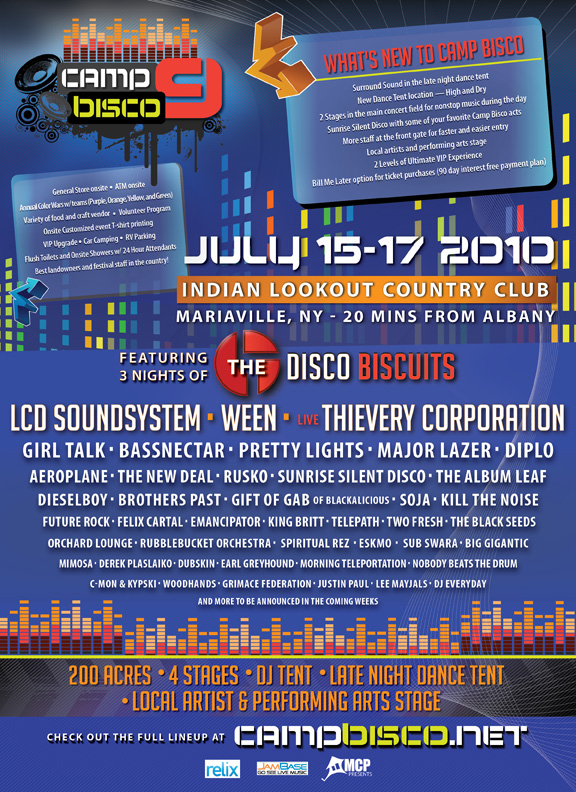
Over here at Evolving Music we love musicians who are willing to shun convention and adopt bold new paradigms when it comes to music creation, production, or distribution. Or those who simply take risks with their music. Greg Gillis (aka Girl Talk) is one such musician. Known for his masterful musical mashery, Girl Talk “has turned the cut-and-paste process into a jams-packed jigsaw puzzle.” (Wired)
With the release of his fourth album, Feed the Animals (available through Illegal Art), Girl Talk continues his remix magic, in this case combining over 300 samples. Curious what songs were used? Click here. As if his peculiar art form wasn’t unique enough, Gillis went ahead and endorsed the Radiohead model, by selling his album online with a name-your-price system. The young fellow has been rather busy lately what with his new role as the unassuming rockstar. Check out his tour schedule on MySpace to catch him live. Greg was kind enough to let us pick his brain for you for a few minutes.
Sandra Possing: For the sake of any readers who might not be familiar with your music, let’s start with the basics. Girl Talk. Where did you get the name? Does it have a special meaning?
Greg Gillis: When I started doing laptop music, there was a theme in Pittsburgh, and even internationally, of people doing live electronic music at the time and I thought that some elements of it were stiff, stoic, very borderline academic… I was cool with that stuff, but I kind of wanted to challenge it a bit. I knew I was gonna do a project based around the idea of appropriating pop music and culture, so I wanted to pick a name that was sort of glossy and over the top that would challenge the stiff underground of electronic music.
SP: So there’s not one specific meaning to the name?
GG: It’s so many different things… Boardgames, books, previous bands. It just sounds like some Disney band name and that’s the kind of vibe I wanted in the early days.
SP: You used to be a biomedical engineer. You kind of did the double life thing for a while – nerd by day, badass DJ by night. What was that like?
GG: It was pretty crazy. I never told my coworkers about what I did. I’d never considered myself a DJ in the traditional sense and it would’ve been hard to explain the performance, just cause it was such an underground thing. They were an older group and they were cool but I didn’t want to go in there and be like ”Look, I have a band called Girl Talk, where I play computer and rip my shirt off, and remix pop music on the fly and jump on top of people. It would have been too much to push on them.


And in the early days of the job, it was like I’d always done Girl Talk since 2000 but it was something that was never intended to bring in money or be a career or anything like that so when I used to work there there was just really no point in telling them. It was just something where I’d make records in my free time and play a show once a month or something like that. So once it got very big and started taking off, it was at the point where it was too late to explain to them. You know what I mean? I would have loved to have told to them at that point, cause it turned in to me playing shows every single Friday and Saturday. You know, jumping on a plane and coming back and doing work Monday through Friday.
But, it was like 3 years into the time that I was working that job so I didn’t want to be like ”Look, btw, I forgot to tell you, I have this thing called Girl Talk and I happen to be selling out shows now”. It just would have seemed too weird. So ya, I didn’t tell them. So it was like a steady year of that where I basically had like a hidden personality. It was nuts. I’d sit in a cubicle all day on Friday then run to the airport, fly out, and then be signing autographs for playing the computer 4 hours later. It was very bizarre.
SP: How did they react once you told them?
GG: Um, I never told them. When I left the job, I basically… I didn’t lie to them… But again, I planned on eventually doing engineering work again – that was my first job after college. So I wanted to not break the ties with them, I didn’t want to be a weirdo. So, I told them that I felt that if I stayed with the job then I might be there until I’m like 50 with kids. And I was worried about taking advantage of my youth and I wanted to travel the world. Which, you know, was kind of the truth, but I didn’t really explain the music thing to them. But since then, I’ve had a lot of coworkers hit me up on Facebook and see like a thousand photos of me shirtless sweating on people. But they were cool with it. I knew they would be. It’s just kind of an awkward thing to tell people.
Sp: Do you miss it? You day job – sitting in a cubicle?
GG: Uh… no, not at all. I mean, with the music thing now, I really feel like I don’t have a job. I just, you know, do what I would be doing anyway and somehow I’m living off it.

SP: Would you say that your engineering experience has influenced your music.
GG: Ya, I mean I think… I think it’s the nature of going to school for 4 years to study something like that and then getting a job. I have no traditional musical training, and I’ve always been obsessed with and passionate about music and it’s kind of been my main thing forever. But, basically, in approaching this project with the computer, I had to come up with an alternative solution for making music. I knew I wanted to remix pop music and things like that. I had no idea how that would go down. You know just the nature of this project, where its very meticulous, and you’re working on small elements – somedays I’ll work for 10 hours on like a 30 second segment and then that goes on to influence a much bigger picture – I think that definitely relates to the world of engineering.
SP: So you’re using analytical, detail-oriented part of your mind.
GG: Ya, just kind of getting down and working on the small chunks and focusing on the small little bits that will piece together to solve a bigger problem. Not that there’s necessarily a problem but, you know, in the case of music, like a goal.
SP: If you weren’t doing what you’re doing with music or if you weren’t doing engineering like you have in the past, what else could you see yourself doing?
GG: Oh man, I don’t know. I mean, I did ok in high school, studied, did well in every subject. I kind of picked engineering randomly, so… I think I’ve always been good in math and sciences, so I think anything related to that like just straight up biologist or something like that which is kind of related. But, outside of that world, I have NO idea what I would do. Maybe… professional basketball player?
SP: Are you good at basketball?
GG: Ya, I used to hoop a lot. Not anymore. I don’t get enough time. My game is kind of sad to me. I was thinking about this… It’s probably the first time in my life where myself 10 years ago would totally kill myself now, and that’s always just a sad thing.
SP: You obviously have a lot of music or have access to a lot of music, given your style. How do you obtain your music? Do you still buy albums, download stuff off of iTunes…?
GG: I primarily buy CDs. At any point in time I usually have about 50 mp3s on my computer, so I don’t have a digital music collection. I usually download songs to hear them or if I have an idea for something I want to try out I’ll download it and hear that song then I’ll usually delete it after I’m done with it. So ya, it depends what I’m buying. I keep up with a lot of underground releases and independent releases. In that case I’ll go to the local indie retailer. Then I also buy a lot of just mainstream music released on majors and I love going to Best Buy and just dropping a ridiculous amount of money, and coming home and opening up the packages and sitting around listening to CDs. So, ya I primarily buy CDs. I still buy some cassettes and vinyl and things like that when I can. But I’ve been an active CD buyer for the last 15 years now.
SP: Do you ever poke around the internet to find music? Do you listen to Pandora, or use any social music sites?
GG: Um… I’m excited about that stuff. But I’ve never done that. My friends are telling me about Pandora – that seems cool. I don’t really read music blogs or anything like that. I’m pretty low key when it comes to exploring stuff on the internet.
SP: Where do you see the music industry going in the next couple years? It’s obviously changing.
GG: I don’t know. I mean, I think the obvious answer is that CDs are going to be dying out at some point. I think there’s a chance that vinyl will still live on just cause the format’s a lot different whereas the digital audio quality on a CD vs a wav file or a nicely compressed MP3 is very similar. So, um…I don’t really know, but I think it’ll be interesting. I still feel like my friends and I go to the record store and buy albums because we have, you know, this moral code ingrained into our minds to support the music industry. It’s also like a nostalgic thing that I will never drop just cause that’s how I grew up listening to music.
But, you know, 10 or 15 years from now when there’s a bunch of kids who grew up just used to downloading music for free, it’s gonna be a whole different world. I can’t imagine them ever being excited about buying CDs, which is fine. I’m gonna stick to my ways. I’m gonna buy CDs until they stop being made. I’m pumped about CDs, but simultaneously I’m excited for that to die off and ultimately it’s just gonna change the reason people start bands, change people’s positions at records labels, change all that in ways that I could never even articulate.
Just the way we understand being in a band 10 years ago vs. 20 years from now will be a lot different. You know what I mean? I grew up seeing, like, Nirvana or even like Guns’n’Roses or something like that. Rock music – even as a kid you just knew it as this huge industry. You pour in all this money to these guys who are millionaires and then they produce a bunch of millions for you. And that might change, you know what I mean? I don’t know if that’ll be the case anymore. I think right now is a great era for touring musicians. It’s so easy to get exposure via the internet. Granted, there’s so much stuff out there, it’s hard to get noticed because right now there are probably more bands than ever, more projects, but simultaneously you can do something weird in 2008 and be noticed on the internet if people take to it.
It’s in the people’s hands rather than the mainstream media. So that’s exciting how you can continually grow like that to the point where… I don’t know what major labels will do or how they’re gonna hang on twenty years from now, but I’m sure they’ll come up with something.
SP: So, on that same note, obviously the way that artists are distributing music and the way the fans are consuming the music, that’s all changing very quickly. Is that why you decided to release your new album online with a set-your-own-price model, the Radiohead model.
GG: Ya, I mean, the label that puts out my stuff, Illegal Art, threw the idea out there. I thought it was great, you know. If we had released that album just as a CD it would have been a major delay, which is frustrating because it’s something I work on for two years. It’s exciting to just see it, to piece this thing together and to finish on a Tuesday and put it online on a Friday. And outside that, I just want to acknowledge that if we did release this on a CD, then some kid’s gonna buy it, rip it, put it online and immediately everyone on a file sharing network can get it for free. That’s just the reality of music now and I think that’s a great thing. I’m excited for the music to be spread through the internet. So it seemed like, why play dumb about it when you could just be upfront about it and acknowledge that reality and say to people ”Look I know you can get it for free, go ahead and take it for free if you really want to, or if you wanna pay us that’s cool too. I think pay-what-you-want model was novel enough that a lot of people were excited to be a part of it. A lot of people were hitting me up and telling me ”Greg, I paid $15 for the album!”

SP: Fans are much less patient than they used to be. They want their music how they want it and when they want it. They’re not willing to wait so you might as well cater to that.
GG: Sure, ya. I mean, I’ve only been really living off music for the past year and a half and I don’t want people to lose their jobs at labels and I like the idea of musicians being able to live off that. But, that’s also very foreign to anything I knew to being involved with music. All of my friends’ bands and my bands, Girl Talk when it first started… it was never like ”Man, I hope I can live off this”, it was just ”Let’s create music and get it out there to as many people as possible.” And when you take money out of that equation it’s like… right now is a beautiful time. You can get your music exposed to so many people.
SP: And that way it’s more genuine too.
GG: Ya. And even financially too. I see a lot of indie labels thriving, via merch etc. I always think about the project I’m doing now in terms of the bands I was into when I was in high school and going to someone like Kid 606, or going to see Pavement, or The Jesus Lizard, or anything like that. Just thinking about the size of shows that they played versus the size of shows that I play or any of my contemporaries play… the audience for underground music is enormous right now comparatively. That’s a very cool thing.
SP: Let’s talk about the artists that you sample. Obviously, what you do is a little controversial. What’s the typical response? Do they not reach out, do they reach out and say ”Hey awesome, this is positive promotion for us” or has anyone gotten upset yet?
GG: I’ve had no issues. It’s a rare case when people reach out but it’s definitely gone down a few times. A lot of people at labels have reached out and been cool with it and I think that a lot of people in the industry kind of understand my work is almost a tool of viral marketing and they see it as transformative, as something that’s not negatively impacting the potential sales of their product, so they’re into it. On the artist end I’ve had a few. One of the ladies from Yo Majesty sent me an email recently, the manager of Sophie B. Hawkins reached out cause she wanted to collaborate. I heard from a songwriter for Donnie Iris. I met Thurston Moore one time… He was not familiar with my material but we played a show together and I was explaining to him that I put out samples of his stuff on my CDs and he was (without hearing it) theoretically cool with it. I’ve had Big Boi from Outkast come out to a show of mine in Atlanta and chat it up and he was cool with it. So… If you pay attention to music right now, you know your song is blowing up when there’s a bunch of remixes of it. That helps put fuel on the fire. I think anyone who looks at the internet on a daily basis is probably aware of that phenomenon.
SP: Do you feel like this whole mashup, remix culture is exploding right now? Do you find that other artists are emulating you specifically? A lot of people do remixes, but we don’t see many people remixing that many songs into one track.
GG: I see it on the internet, people on my Myspace hit me up all the time telling me to check out their stuff and I check out what I can and I see a lot of people kind of mocking the style, which is great. When I started I was heavily biting the style of Kid 606 and I think it went on to evolve into something else. To me, that’s how you make music. You start off jamming to Nirvana covers in your basement and all of a sudden you’re making original music. Every idea is influenced by something, whether it’s physically or just an idea. I think it’s crazy and I definitely think the whole idea of remixes is blowing up culturally right now. That’s what the internet has brought to the table. People are allowed to be interactive with the media that they consume. If you go on youtube, there are a million fan videos for random songs, movie clips spliced together, people taking images from the public and splicing them together in photoshop. It’s like everyone is becoming so used to being interactive with the media that’s around them, which is way different than even 10 years ago. The tools are available now. It’s exciting.
I remember when I started doing Girl Talk, people were definitely remixing pop music but it’s like if a new Destiny’s Child song comes out and I do an unsolicited weird remix and put em on the internet, I could be pretty sure that maybe a couple others would be out there, whereas now it’s like the new Beyonce single comes out and they release the a cappella and instrumental on the internet and within 48 hours there are 1,000 new remixes and there are a bunch of Yubetube videos and there’s a chipmonks version set to a cartoon. It’s just like we’re living in an era of appropriation right now based on what the internet’s provided for us.
SP: Have people remixed your music?
GG: Ya I’ve seen it. There’s a brand of southern stuff – hip hop – called Chopped and Screwed, where things are slowed down and kind of chopped up a bit. I saw a Chopped and Screwed version of my album. Some other people have done some kind of experimental takes on my stuff. So I’ve seen it a good bit and I’m happy to be a part of that dialogue. It gets me pumped when I see people actually appropriating stuff that I’ve done and making something new with it.
SP: So, last question. It seems like you’ve been putting out an album about every 2 years – ’02, ’04, ’06, ’08. Should we expect your next album in 2010?
GG: I’m not sure. The last two albums were kind of like cousin albums for me. Both of those I worked on as one cohesive whole so it’s not like I work on individual songs. I work on one 15 minute piece of music until I feel like I’ve accomplished what I wanted to accomplish meaning that I don’t know if I’d be able to replicate that again. I’d like to mix it up again at some point. Kind of break out of that mold. It’s intense to dedicate two years to one … and then be stressful and you know you’re kind of putting all of your eggs in one basket. I’d like to fool around even , maybe put out an EP or put out some individual songs on the internet, just kind of break the tradition of what’s been going on. I work on music every day and I have no idea what it’s gonna go toward. When an idea comes out it just exists and right now I have really no view of the future beyond this month.
SP: One more last question. What do you enjoy more, doing live shows or working in the studio?
GG: It’s two different things. The live show is instant gratification. It’s fun. It’s in your face. It’s like the payoff. And working in the studio is more like a long term relationship where it can be really miserable and grueling and tough but at the end of the day it’s very satisfying.
SP: So if making an album is like having a long term relationship, is a live show like a great one night stand?
GG: Absolutely.











